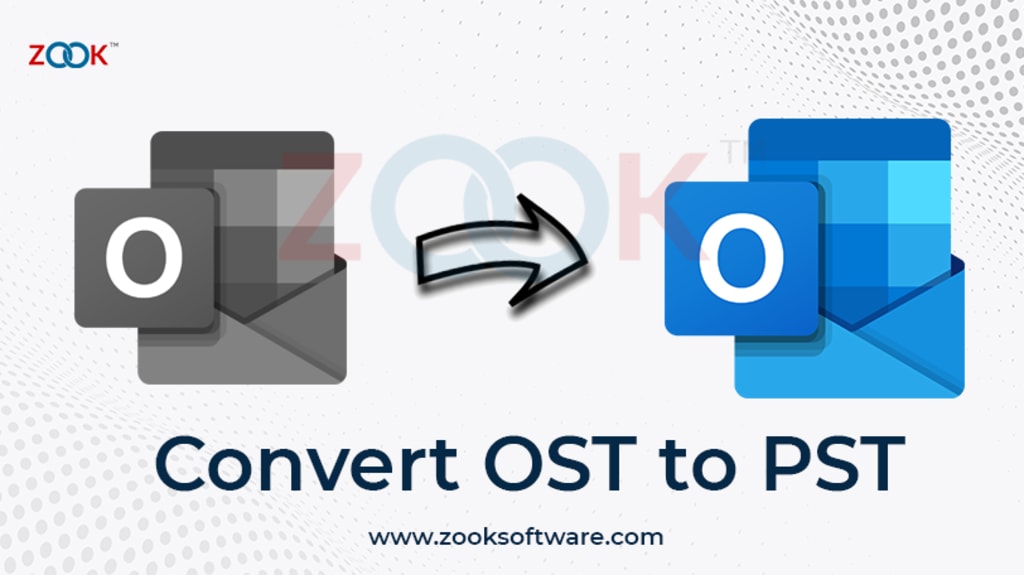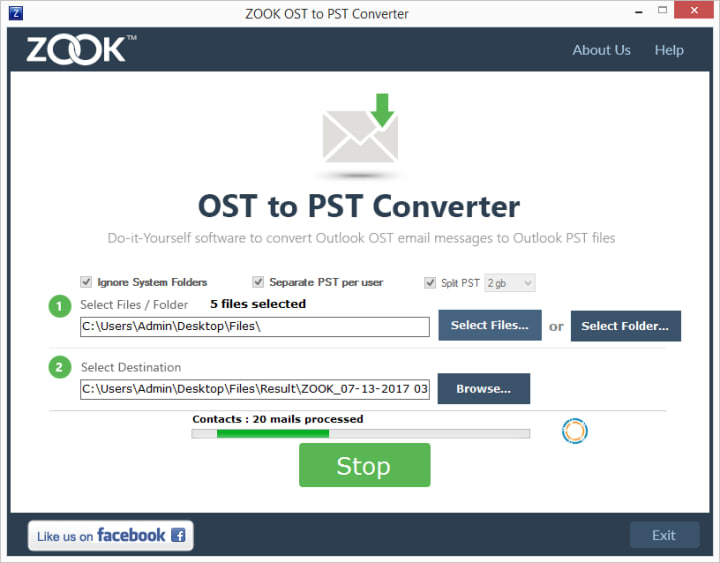How Can I Export an Inaccessible OST File to MS Outlook 2021?
Quick Solution to Open Inaccessible OST File in Outlook in 3 Steps

It is difficult to open an inaccessible OST file in Outlook. If MS Outlook is not connected to any Exchange servers, you cannot read, view, or import an inaccessible OST file. Depending on the cause of the inaccessibility of the OST file, you might need to export the OST to a format that can be accessed, such as PST. In this blog, you will get an effortless way to import Orphaned OST file into Outlook without any hassle.
An OST file may become unavailable for a number of reasons. Additionally, Microsoft Outlook will display error messages when you attempt to open such files. You can actually grasp the cause of the file's inaccessibility thanks to these error messages.
What Causes an Inaccessible OST File?
When an Outlook profile has been erased or an Outlook OST file has been moved or become orphaned, you may occasionally need to import or open mailbox contents from that file. An Outlook account cannot access such an OST file.
Try to identify the problem because there are many reasons why it might occur, one of them is that the OST file you wish to view might not be there at its original location or that it might have been destroyed or transferred there.
In these cases, it becomes required to convert an inaccessible OST file into another MS Outlook compatible data file format in order to have access to the OST file's mailbox contents. So the question is, how do you convert an Outlook OST file to an Outlook PST format? To find out more, read and understand how to save an inaccessible OST file to a PST file in MS Outlook.
Techniques to Export an Inaccessible OST File from Microsoft Outlook
Method 1: Export using Import-Export Wizard
Using the Import-Export Wizard, you can export the contents of your active Outlook account's mailbox from OST to PST. With the help of this wizard, you may access and import any data file into MS Outlook. All you have to do is carry out the simple actions listed below:
Follow the given detailed steps as given below:
- Open Microsoft Outlook, then select the File tab.
- Choose "Open & Import"
- Then select the File menu's Import/Export option.
- After choosing Export to a file, click Next.
- Select Outlook Data File (.pst) and click Next to continue.
- After choosing the mailbox items you want to export to PST, click Next.
- To change the PST file's location and name, select Browse, then press the Next key.
- After checking the "Do not replicate duplicate items" box, press the Finish button.
- When prompted for a password, enter it, click "OK," and then store it where you like.
Method 2: You can also convert OST emails to PST using the Auto Archive option
- Log into your account and select the File menu.
- Next, select the Options tab.
- Select the Advanced option after that.
- Click AutoArchive Settings after that.
- You can pick the time frame and location for the archived file in the AutoArchive wizard.
- In order to complete the transaction, click Ok.
For people whose OST file is linked to an MS Outlook account and who merely want to create a backup of it in a PST file, this is a suitable solution. Orphan OST file can't be used in this situation. Don't panic, though; you can still attempt the other techniques listed below.
Method 3: You can Reconstruct the OST File and Ensure that it is completely Healthy
The only steps required for this procedure are to close Microsoft Outlook and remove the existing OST file from its location. Restart MS Outlook after that and wait for the Exchange server to synchronize Outlook. With all the data, a new OST file will be created immediately.
The only drawback to using this strategy is that you need an operational server. Only after that will the data be synchronized and a new OST file created. Therefore, you must rule out this option if your old OST file is faulty or orphaned.
Method 4: Use Automated Software to Convert an OST file to a PST File
Direct OST to PST conversion is only feasible with a premium software solution. They are well-designed and equipped to convert numerous OST files to PST without losing any data. You can use one of several such software solutions to immediately export OST to PST. Once you've produced the OST file, you may quickly import or open it in any MS Outlook profile.
You might try the ZOOK OST to PST converter out of all the related software. It is the most user-friendly and straightforward wizard available on the market at this moment. This converting tool is incredibly inexpensive and requires no technical knowledge to operate.
Here are few simple steps for converting OST to PST using ZOOK OST to PST converter:
- Install the Microsoft OST to PST Converter.
- Look for the inaccessible OST's location.
- Choose a location to save the converted PST file.
- To begin the conversion process, click the Convert button.
- Finally, import the PST into Outlook and use it.

Once you have the PST file, use the import / export wizard to import it into MS Outlook. Alternatively, if you merely want to open the PST file, go to File >> Open Outlook Data File >> Select PST file. This will allow you to view the data in your inaccessible OST file in any MS Outlook.
Conclusion
All of the approaches stated above are applicable in various scenarios. So, if you have an inaccessible OST file, use the most suited way and complete your task. However, using a paid tool is always the best option because it is dependable, efficient, simple, and saves time.
To gain access to an inaccessible OST file, convert it to PST. And while MS Outlook has options such as Archive or Import/Export Wizard, they are not always usable. If the manual method is not acceptable for you or you need to convert a large OST file to PST without risking data loss or corruption, it is recommended that you use an OST to PST converter application.





Comments
Steve Smith is not accepting comments at the moment
Want to show your support? Send them a one-off tip.